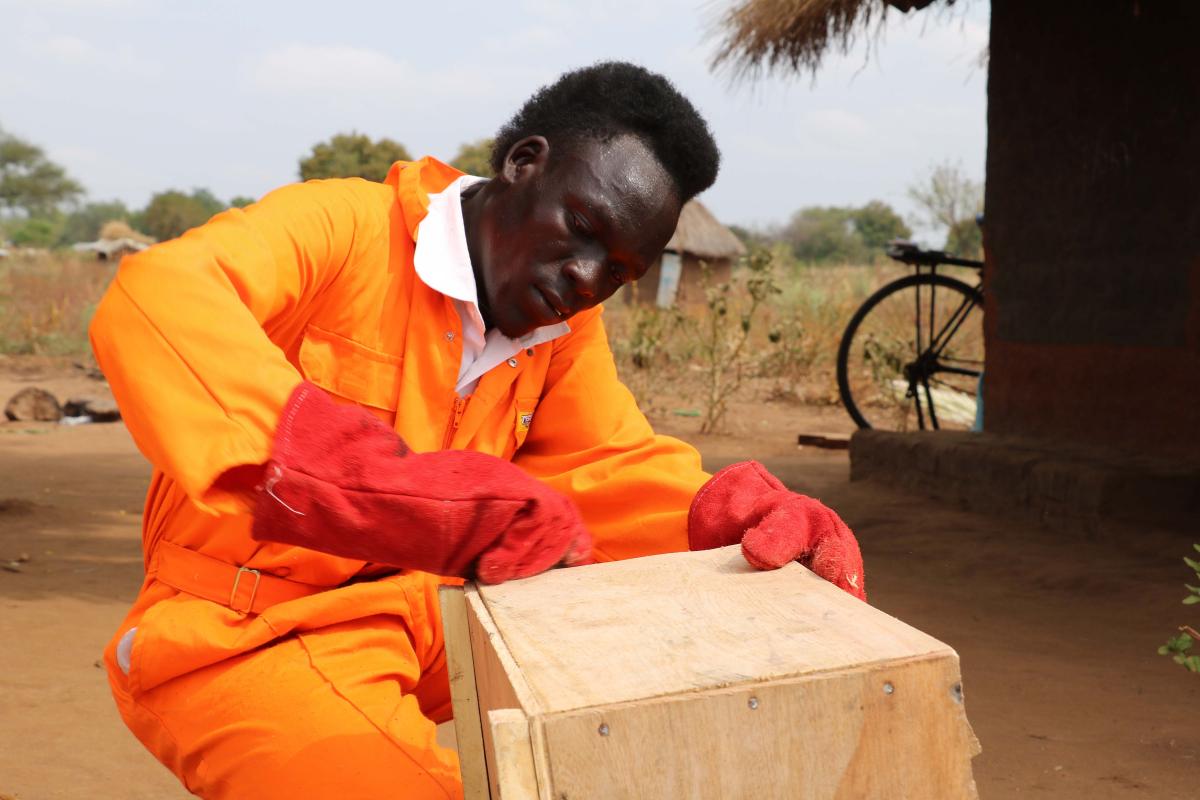Earning a living from beehives in Uganda
It is a hot January afternoon in Imvepi refugee settlement in Arua district, home to almost 80,000 South Sudanese refugees.
Twenty-year-old Alison John and his fellow students, both refugees and locals, are busy making beehives out of timber.
Even as they are putting the final
touches, there is already a buyer for their products. A nearby apiary
farm has been purchasing all the beehives produced during the training.
Beekeeping is good business in this part of Uganda. Honey goes for as much as 16,000 shillings per liter.
The demand is high. The honey from Arua is sold at supermarkets in Kampala and even exported abroad.
Ever since John joined the training,
organized by the Belgian development agency Enabel, he sees a bright
future for himself and his family.
His father died a few years ago and John, being the oldest son, became the head of the household.
In 2017, when the war engulfed his home area of Yei, he fled with his sick mother and younger brother to Uganda.
But life at the settlement was difficult. He found it hard to depend on UNHCR for basic things like food and water.
“I wanted to acquire skills that would
enable me to earn a living, not only here in the settlement but also
after I return home,” he said.
At the end of the training, John and his colleagues will receive start-up kits to enable them to set up their own business.
They were also equipped with entrepreneurial skills to ensure that the businesses started are well managed.
Enabel delivered the training in close
partnership with Tornado, the umbrella organization coordinating the
beekeeping sector in Uganda and Oxfam.
Dernières actualité de ce projet
Pas d'actualité

